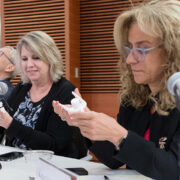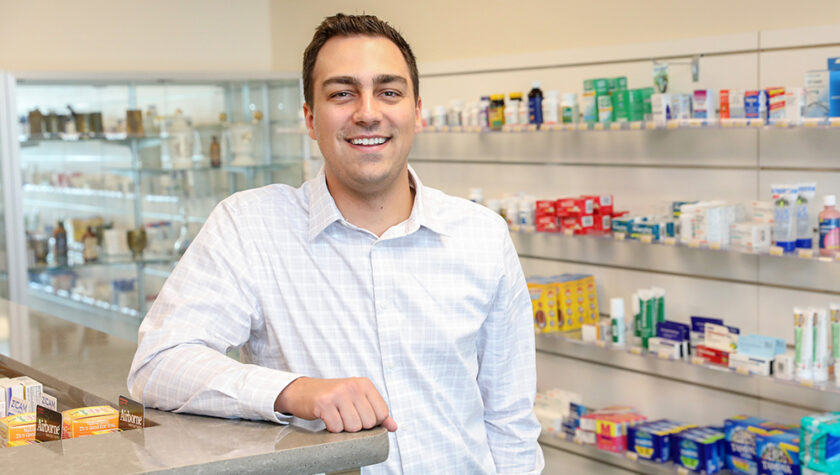
11
June

The first alumni of the School’s Operations and Technology Management PharmD path lead with business acumen and clinical expertise
By Katie Ginder-Vogel
Greg Norsten (PharmD ’20) is something of a trailblazer. As a PharmD student at the University of Wisconsin–Madison School of Pharmacy, he was on the School’s first team to participate in the national Value of Industry Pharmacists Case Competition hosted by the Industry Pharmacists Organization, and he was one of the first students to jump into the School’s SHARx Tank to pitch an entrepreneurial idea to a panel of esteemed alumni judges.
He was also among the first PharmD students to graduate from the School of Pharmacy’s Operations and Technology Management (OTM) concentration in the PharmD program, which debuted in 2018. The first-of-its-kind program, a partnership between the School of Pharmacy and the Wisconsin School of Business, gives PharmD students the opportunity to take MBA-level courses and complete business-focused clinical rotations.
“It’s so exciting to see that the program did what it was designed to do — accelerate the careers of our pharmacy students by empowering them with business and management tools and skills that no other pharmacy student in the state can compete with.”
—Ed Portillo
“I appreciated the OTM program because you see the perspectives of a diverse set of people and learn how they would approach things, and it helped me pursue what I wanted to do,” he says.
Norsten’s penchant for ingenuity has continued throughout his burgeoning career, enhanced by the experience he gained in the School’s OTM program: He’s now the first person in his company to ever hold his role: pharmacy revenue integrity manager for HealthPartners, a care delivery system in the Minnesota and Wisconsin area.

“The business training in the OTM really applies to any role — these are transferrable skills for any pharmacy career, including clinical environments,” says Ed Portillo (PharmD ’14), associate professor in the School’s Pharmacy Practice and Translational Research Division, who helped launch the program and continues to lead it with Mel de Villiers, professor in the Pharmaceutical Sciences Division and associate dean for Academic Affairs.
But Norsten isn’t the only one. Julia Gilbertson (PharmD ’20) and Drew Dretske (PharmD ’20, MS ’22), also among the program’s first graduating cohort, each took the specialized training into different realms of pharmacy leadership.
“Looking at the careers of our first cohort of OTM graduates, it’s so exciting to see that the program did what it was designed to do — accelerate the careers of our pharmacy students by empowering them with business and management tools and skills that no other pharmacy student in the state can compete with,” says Portillo.
Managing pharmacy revenue
As the pharmacy integrity revenue manager, Norsten works with administrative and clinical factors that contribute to revenue cycle management.
“I focus on Part B medications — infusion drugs and non-self-administered drugs,” he says. “I work with high-cost infusions, dealing with the whole revenue cycle management spectrum, from pre-access to clinical operations, coding, denials, and backend processes — everything related to pharmacy.”
Norsten’s role spans four categories of responsibility: optimizing revenue capture for HealthPartners, avoiding revenue loss, maintaining compliance, and mitigating risk.
“I appreciated the OTM program because you see the perspectives of a diverse set of people and learn how they would approach things, and it helped me pursue what I wanted to do.”
—Greg Norsten
“Day to day, my job is to identify problems in the revenue cycle and figure out how to resolve them by getting the right stakeholders involved, communicating, educating, and building a system to prevent it from happening in the future,” Norsten says.
As the first person in this role, he continues to evolve the position, seeing the potential for new ways to add value.
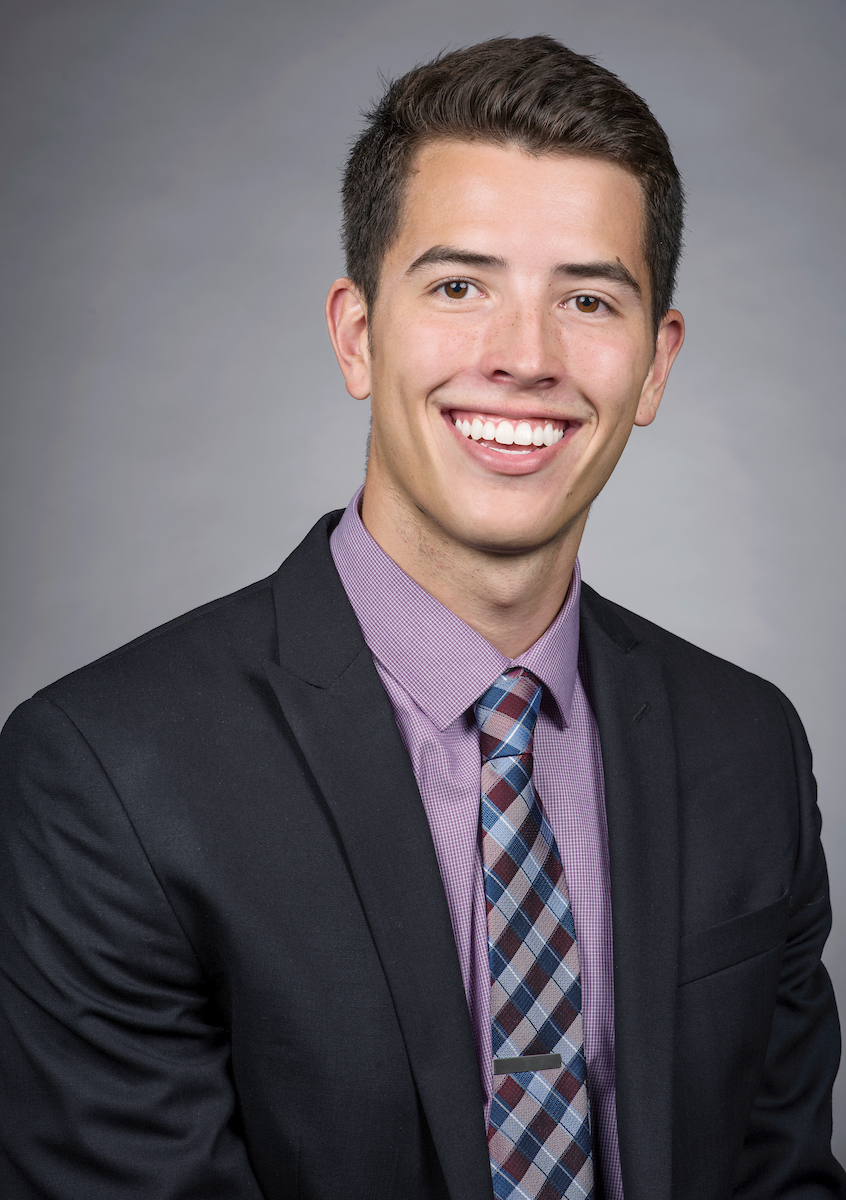
“I’ve developed rapport with payer relations, coding, physician leaders, and pharmacy teams, and I keep getting involved in more things,” he says. “I really enjoy problem-solving. I’m learning every day, and that leads to a lot of job satisfaction for me.”
Ongoing learning and problem-solving were key takeaways of the OTM program, which Norsten says set him up for success in his residency and career.
“Through the OTM program, you build a framework for understanding systems, and that helped me in my interview process for residencies,” he says. “As a competitive candidate, I got a Health System Pharmacy Administration and Leadership residency spot at UNC, and that’s where I became aware of pharmacy revenue integrity management.”
Norsten says the tools he learned in Wisconsin Business School Professor Enno Siemsen’s project management course prepared him for his current role, and he also uses insights from his Lean Six Sigma course, which teaches a framework for process improvement and problem-solving.
“Every day in my current role, I’m managing one-off projects, so building a framework to understand what a project is, how to implement it, and how to recruit the right stakeholders was really valuable,” he says.
Advocating for veterans
Julia Gilbertson, as the clinical pharmacy supervisor for outpatient mental health and pain management at the Phoenix VA in Arizona, has 15 direct reports, and her role includes personnel management, assessing productivity and performance, and program management.
“I also oversee the process of improving clinical programs and service expansion,” she says. “I look for gaps in outpatient mental health that pharmacists could help fill.”
In this role, she regularly draws from a Service Operations Management course that she took with School of Business Associate Professor Bob Batt as part of the OTM program.
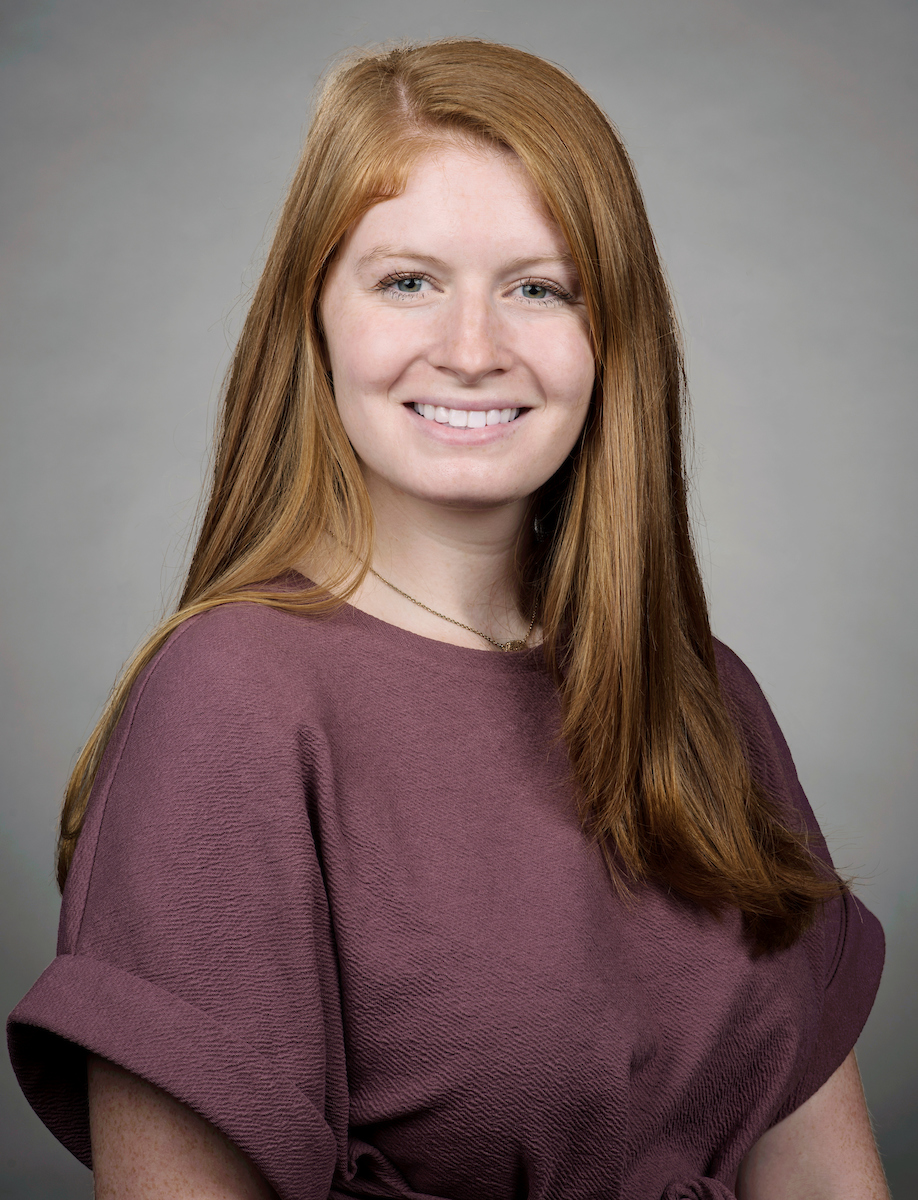
“In every class session, he walked us through examples of effective and less effective processes and how each one would serve the end user,” Gilbertson says. “I feel like that really helped me figure out how a process ultimately affects the end user, like our veterans and — for me, as a supervisor — all the staff I oversee.”
She says her favorite thing has always been connecting people with the tools and resources they need to accomplish a specific goal.
“If a pharmacist comes to me and says, ‘I’m interested in building this new program at our VA,’ I love to say, let me see where we can get started,’ let them take the lead and provide them with the resources to accomplish their goals,” she says. “That results in their job satisfaction, so they can build something new and have ownership of it.”
When collaborating with pharmacy and interdisciplinary colleagues, as well as with other members of leadership, Gilbertson frequently uses skills she learned in a course about negotiation.
“I developed the skills to learn what’s important to someone else and communicate that I value that, so we can work together to reach a middle ground,” Gilbertson explains. “It’s most helpful when we focus on what benefits our end users — veterans.”
Launching specialty services
After completing his dual master’s degree and residency program in Health System Pharmacy Administration at the School of Pharmacy and UW Health, Drew Dretske spent a year in Dallas, Texas, where he helped develop a specialty pharmacy line at Texas Children’s Hospital and became director of outpatient pharmacy.
He returned to Wisconsin in February 2024 as director of specialty pharmacy services at Mercyhealth, again working to establish a new specialty pharmacy service line.
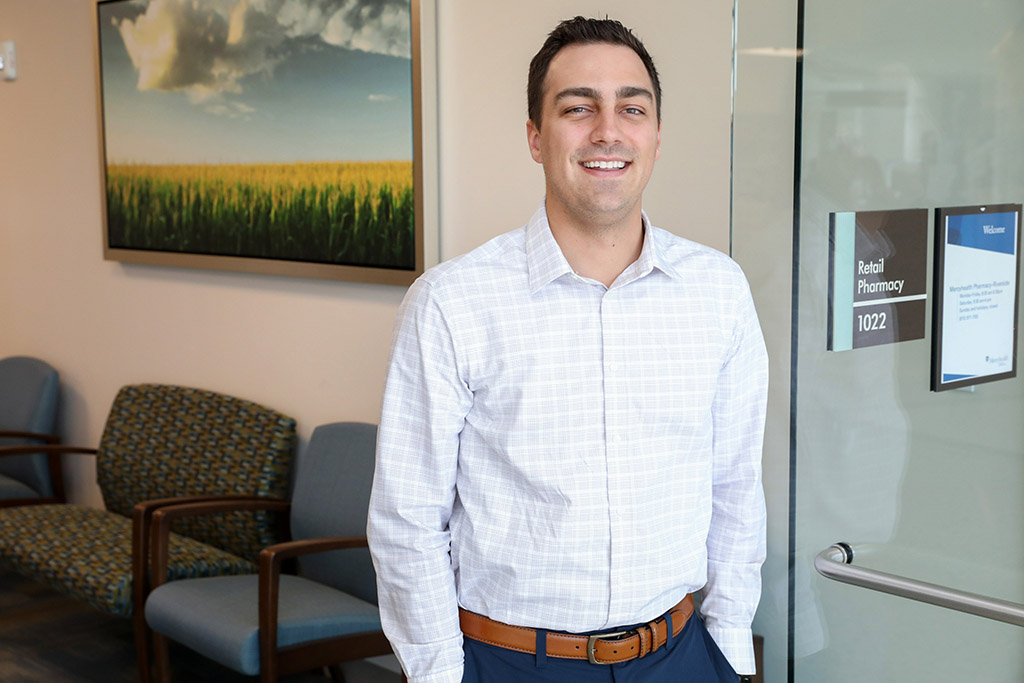
“Once we get it up and running, I’ll add team leadership and quality improvement projects to my responsibilities,” says Dretske. “Right now, I’m implementing new workflows, creating project budgets for the program, and engaging with providers, clinics, and departments to share what this new service line will be and how we can work together to grow it and allow patients to use specialty pharmacy services.”
While launching these service lines, Dretske has been grateful for the semester of the OTM program that he spent practicing negotiations and project management with classmates from different areas of study, like business and engineering.
“As a leader in pharmacy, you’re often negotiating multiple vendor contracts, and the skills and strategies we learned in the negotiations course have been helpful,” he says. “The project management course helped me during residency and during the past two years of my career, in terms of understanding how to start a project, engage with stakeholders, and run the project longitudinally.”
Dretske enjoys the outpatient area of pharmacy and says health systems are starting to see the value of managing patients through health system pharmacies that are integrated with clinics.
“Health systems are switching to outpatient care, even moving from infusion to injectables, which is where specialty pharmacy will go. I’m excited about the opportunity to impact patient care in health systems.”
—Drew Dretske
“There’s an opportunity to expand that across the US,” he says. “Health systems are switching to outpatient care, even moving from infusion to injectables, which is where specialty pharmacy will go. I’m excited about the opportunity to impact patient care in health systems.”
A growing pathway to pharmacy leadership
Six years since the OTM program’s launch, PharmD students remain enthusiastic about the opportunity to merge business leadership and pharmacy.
“This is a natural fit for pharmacists, who historically are entrepreneurs and business owners,” says Portillo. “Learning how to overcome new challenges and improve processes has enabled these graduates to thrive in a breadth of practice settings and influence the delivery of care at a higher level. These alumni exemplify our hopes for how the program would meet this growing need in pharmacy.”



